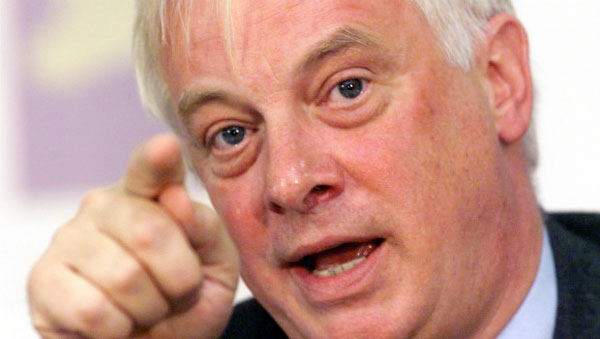
.jpg)
When 17 years ago the British lowered the Union Jack on their last remaining important colony, Hong Kong, Chris Patten, the governor, buried his face in his hands for the entire world to see and felt the profoundest sentiment a proud and ambitious politician could experience - failure.
It was indeed a personal failure to be added to his other great misfortune, the timing of elections back home in Britain that made it impossible for him to become prime minister. But on that damp evening it was the people of Hong Kong, those who knew him well could tell, that pierced his conscience. The British had let them down. They were giving up a colony having unaccountably failed not to leave it as a functioning democracy.
In every country except Palestine in 1948 - when the top British officials literally dropped the keys to their secretariat on the steps of the closed UN office before flying out at midnight - the British left behind an elected leadership and a popular elected legislature. Yet even when the British did this right, in almost every case, seemingly built into the de-colonization process, there was a tragic mistake that would work over time to undermine the stability that the old imperial Empire had prided itself on.
In India, the jewel of the crown, the British, thanks to a series of imperious and wrongheaded decisions made by the viceroy, Earl Mountbatten, left as hundreds of thousands of people were dying in a carnage of religious division.
"In every country except Palestine in 1948 - when the top British officials literally dropped the keys to their secretariat on the steps of the closed UN office before flying out at midnight - the British left behind an elected leadership and a popular elected legislature"
In their book, “The Dust of Empire”, Karl Meyer and Sharleen Byrsac write that records show Mountbatten swept aside all the compromises that Mohammad Ali Jinnah, the leader of India’s Muslims, would have been able to accept and Prime Minister Jawaharlal Nehru at least to swallow, and went for partition.
In Africa, the British pulled up and left even though there was still a dearth of homegrown experience in dealing with two of the great issues of the modern world- economic development and inter-tribal governance.
In Hong Kong it was rather different. On the one hand the British had made such a success of giving a paternal guiding hand to instinctive Chinese go-getting that there was no doubt that the deepest foundations had been dug. But on the other hand, the British, until the time of the premiership of Margaret Thatcher, seemed to think they could rule this exceptional corner of the world forever, despite the fact that British rule rested on a fast expiring lease from China. And, even if Ms. Thatcher with her forthright common sense could see what others couldn’t and that Hong Kong had to be returned to the mainland, she was as blinkered as any past generation in failing to see the importance of implanting democracy.
"The protesters are now engaged in negotiations with the Hong Kong authorities. How much muscle do they have? Their position would be stronger if they weren’t just students. Where are the now older professionals that provided the troops for all the Tiananmen Square and democracy protests over the last 25 years? Where are the present day pro-democracy members of parliament?"
Only when Patten was appointed governor did Britain wake up and he made a desperate last minute attempt to introduce full suffrage. In the end the Chinese out-maneuvered him. China was able to create a shadow government out of the pro-Beijing capitalist barons and their supporters, and simply moved them into place as the governing class the moment the Chinese flag was raised.
Patten did leave something behind, at least on paper- a commitment by China that Hong Kong would move towards full democracy. It is this that has been the goal of massive demonstration after massive demonstration in recent years. Every time the government appears to be lurching in a more authoritarian direction the people take to the streets.
Beijing, waving the document it negotiated with the British, the “Basic Law”, has insisted that only it can decide the means of political change. It has set about making sure that the election of the Chief Executive in 2017 will be a controlled one.
The protestors are now engaged in negotiations with the Hong Kong authorities. How much muscle do they have? Their position would be stronger if they weren’t just students. Where are the now older professionals that provided the troops for all the Tiananmen Square and democracy protests over the last 25 years? Where are the present day pro-democracy members of parliament?
It is conceivable, given enough push, that Beijing might agree to a compromise which would mean that half the electoral college is directly elected. The Chinese don’t want even more massive demonstrations at the time of the elections. They would look like fools. Besides, by the time of the elections most people in China who have internet access will know well the drama that is going on. Does the Communist Party want to rock its own boat?
The people of Hong Kong have to live with the errors of British colonial policy. Blame them first and China second. If the British had introduced democracy none of this would have happened and the Chinese would have had to live with it.

.jpg)